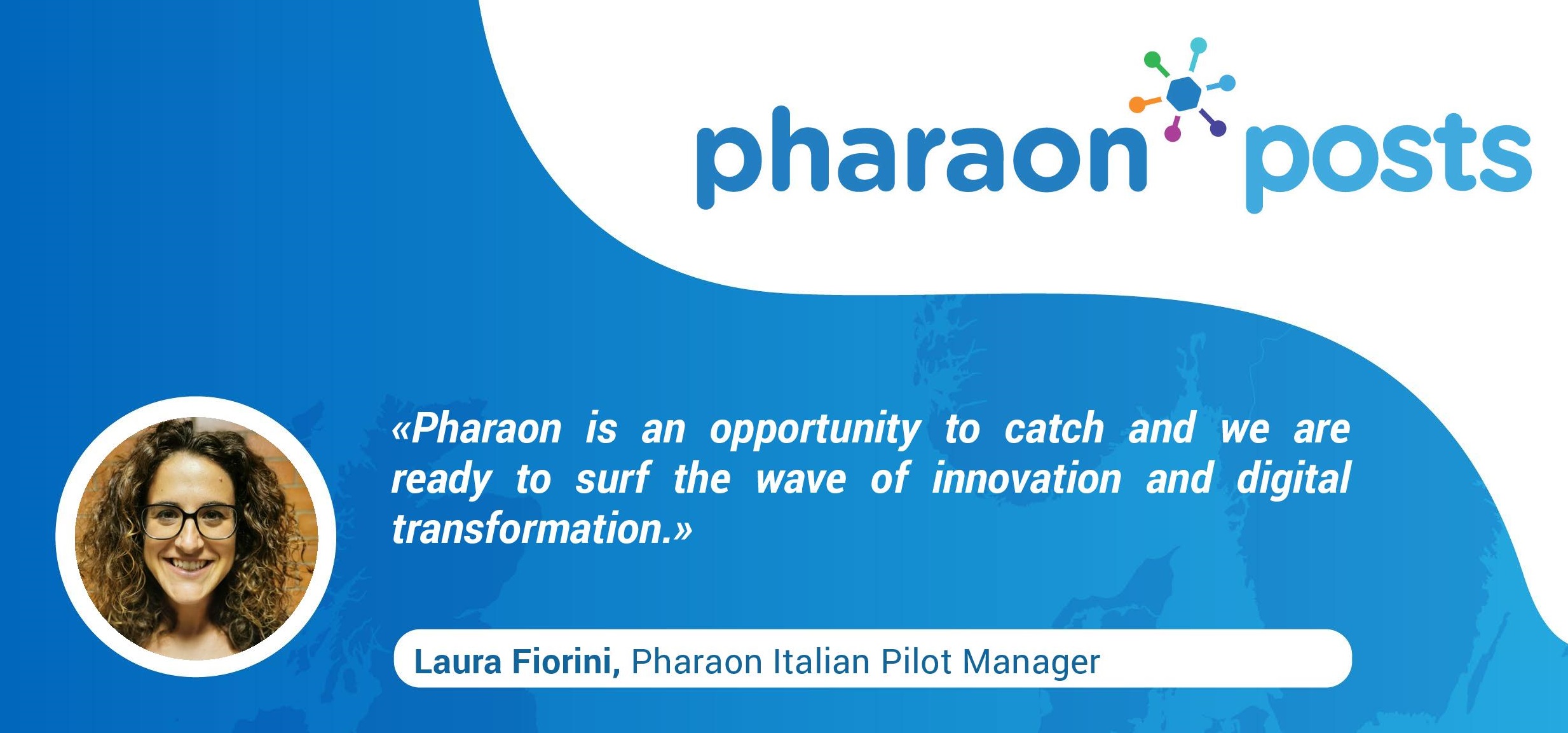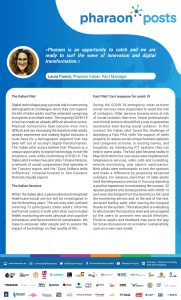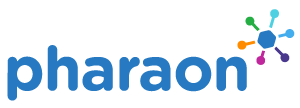
25 Feb Pharaon Posts! Laura Fiorini, Italian Pilot Coordinator
 The Italian Pilot
The Italian Pilot
Digital technologies play a pivotal role in overcoming demographical challenges since they can support the life of older adults and the extended caregiving ecosystem in multiple ways. The ongoing COVID-19 crisis has made an already difficult situation worse. Physical connections have become even more difficult and rare increasing the isolation older adults already experience and making digital inclusion a must-have for a demographic segment that has been left out of society’s digital transformation. The Italian pilot actors believe that Pharaon is a unique opportunity to exploit technology in real-life situations, even while confronting COVID-19. The Italian pilot involves two pilot sites: Umana Persone, a network of social cooperatives that operates in the Tuscany region, and the “Casa Sollievo della Sofferenza” Hospital located in San Giovanni Rotondo (Apulia region).
The Italian Services
Within the Italian pilot, a personalized and integrated healthcare/social service will be investigated in the forthcoming years. The services were outlined involving 73 participants (older adults, informal and formal carers) in both pilot sites and included health monitoring services, physical and cognitive stimulation, and the promotion of socialization. We hope to empower older people and to assess the impact of technology on their quality of life.
Fast Pilot: Fast response for covid-19
During the COVID-19 emergency, most at-home social services were suspended to avoid the risk of contagion. Older persons became more at risk of social isolation than ever. Social professionals and clinical workers should find a way to guarantee assistance even during social isolation. In this context, the Italian pilot faced the challenge of deploying a Fast Pilot (with the support of other projects) to reduce social contact between patients and caregivers at home, in nursing homes, and hospitals, by introducing ICT systems that can help in some tasks. The fast pilot became reality in May 2020 when four use cases were implemented: telepresence services, video calls and consulting, remote monitoring, and robotic sanitization. Both pilots were enthusiastic to test the systems and made a difference by proposing advanced solutions. For instance, more than 10 older adults tried the telepresence service in Tuscany reporting a positive experience in maintaining the contact. 32 Apulian patients who tested positive with COVID-19 and were discharged from the Geriatrics Unit used the monitoring service and, at the end of the test, declared feeling safer after leaving the hospital thanks to the system. The Italian pilot is evaluating to which extent the solutions were and are accepted by the users to promote new social lifestyles. Positive results and feedback may pave the way for future discussions on economic sustainability, such as a new care model.

